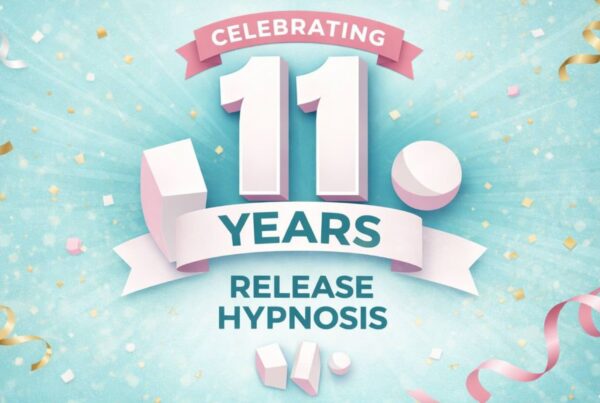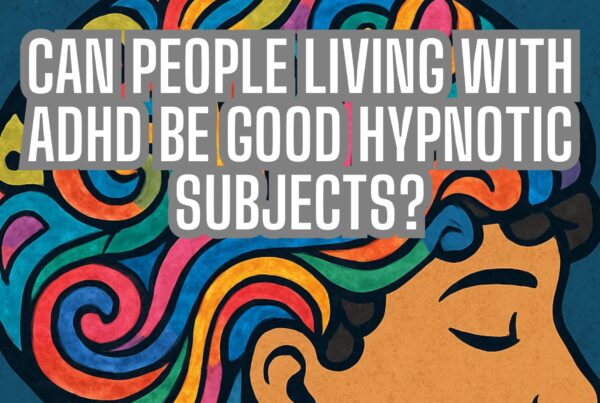Understanding Contraindications In Hypnotherapy: When Hypnosis May Not Be the Right Path
Delving into the world of hypnosis can often feel like venturing into uncharted territory. As with any form of therapeutic modality, it may not be for everybody. Before seeing a hypnotherapist, it is best to understand if you may have any contraindications that could impact on your success.
The Complexity of Hypnosis
Imagine hypnosis as a dance partner. Ideally, both parties engage harmoniously, flowing seamlessly from one step to the next. However, certain individuals might find this dance difficult, not because they lack rhythm, but due to pre-existing circumstances. Individuals with specific medical problems, active substance abuse, or delusional tendencies might find hypnosis more of a stumbling block than a gentle waltz.
When the Dance Becomes Difficult: Hypnosis and Neurotic Disorders
In the dance of therapy, hypnosis traditionally swirls around with neurotic disorders, helping individuals to overcome their anxiety and uncomfortable thoughts and feelings. But when it comes to psychotic disorders such as schizophrenia or varying psychoses, the dance gets too complex. Hypnosis becomes a waltz that cannot be safely executed due to the disorder’s inherent intricacies (Palmer & Dryden, 1995).
The Dangers of the Wrong Partner: Hypnosis and Pathological Personality Disorders
Moreover, people with pathological personality disorders, those suffering from drug or alcohol-induced psychosis, and individuals with suicidal tendencies may not be the right partners for the dance of hypnosis. Instead, these individuals should be directed towards the steadier arms of their doctors and psychiatrists, where they can receive suitable care and treatment.
Dancing Through Pain: The Dangers of Hypnosis and Physical Illness
Hypnosis has proven to be a great dance partner for dealing with pain, offering some a respite from their discomfort. However, it becomes a treacherous tango when the pain has a physical origin. Hypnosis shouldn’t be used to obscure the perception of pain unless the underlying cause has been determined by a physician. Picture hypnosis as a band-aid on a deep wound; it might momentarily cover the injury, but it won’t heal it. In fact, if you’re not careful, you could potentially make it worse.
Contraindications and Medical Consent
Nevertheless, like the rhythm of a song that somehow seeps into your veins, sometimes hypnosis can work wonders where it’s least expected. With the right medical advice, consent, and supervision, even those who traditionally might not be considered suitable dance partners for hypnosis can find a rhythm that works for them, aiding their journey towards improved well-being.
Unsure If You Have Any Contraindications?
If you’re unsure if you have any contraindictions that may prevent you from experiencing hypnotherapy successfully, then you are still welcome to book a free no-obligation consultation call. In that call, you can discuss you concern and together, we can determine what the best way forward would be. There are many forms of hypnosis and a skilled hypnotherapist may engage alternative options that could work for you.
Release Hypnosis Melbourne Hypnotherapy
Since 2015, Lawrence Akers has been working under the name Release Hypnosis offering Hypnotherapy and ACT based work to the people of Melbourne or an online service. Based on St Kilda Rd, Release Hypnosis is an easy and convenient location to get to and accessible by the ANZAC station train and tram stop. Release Hypnosis can help with a wide range of presenting issues, and I offer a free 30 minute no obligation discovery call for those who are unsure if hypnotherapy is the right way forward for them.
Book Your FREE 30 Minute Consultation With Release Hypnosis NOW!
You may also like to read:
Discovering Purpose and Values: A Path to Mental Well-being
Can’t Visualise in Hypnosis? Here’s What You Can Do Instead.
Dealing with Financial Stress and Crisis
What Is The Success Rate of Hypnosis?
Release Hypnosis Melbourne Hypnotherapy is accessible for people in: Abbotsford, Armadale, Albert Park, Balwyn, Bentleigh, Black Rock, Box Hill, Brighton, Brunswick, Bulleen, Bundoora, Camberwell, Canterbury, Carnegie, Caulfield, Chadstone, Cheltenham, Clayton, Coburg, Collingwood, Deer Park, Doncaster, Elsternwick, Eltham, Elwood, Epping, Essendon, Fairfield, Fitzroy, Footscray, Glen Iris, Glen Waverley, Glenhuntly, Greensborough, Hampton, Hawthorn, Heidelberg, Highet, Ivanhoe, Kew, Kooyong, Lalor, Laverton, Lower, Plenty, Macleod, Malvern, Middle Park, Moonee Ponds, Melbourne, Moorabbin, Mount Waverley, Murrumbeena, Northcote, Oakleigh, Ormond, Parkville, Pascoe Vale, Port Melbourne, Prahran, Preston, Richmond, Rosana, Sandringham, South Yarra, South Melbourne, Spotswood, St Albans, St Kilda, Surrey Hills, Templestowe, Thornbury, Toorak, Tullamarine, Williamstown, Yarraville, North Melbourne, Windsor, East Melbourne, Melbourne, Melbourne CBD, Melbourne 3004








